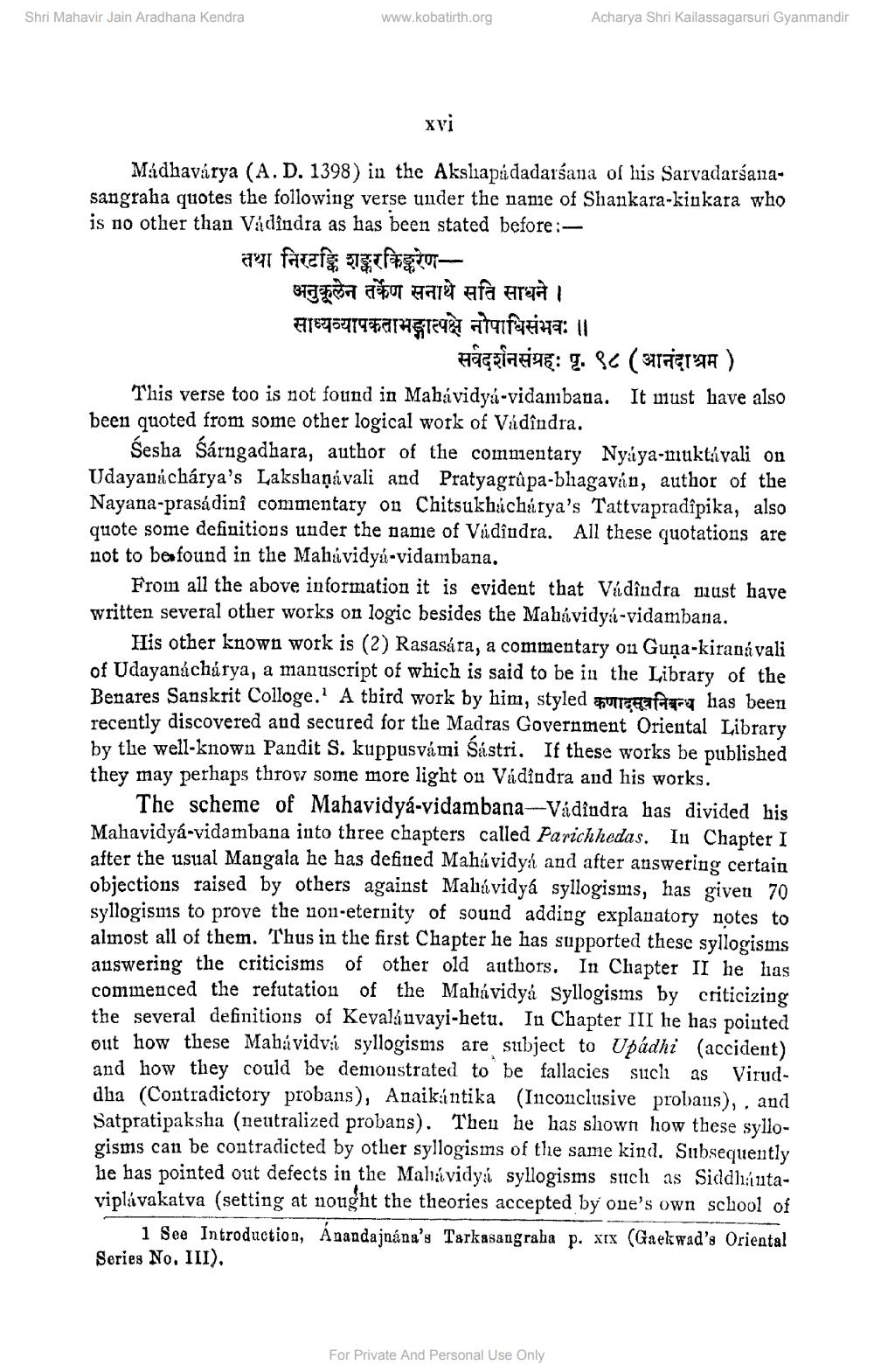________________
Shri Mahavir Jain Aradhana Kendra
www.kobatirth.org
Acharya Shri Kailassagarsuri Gyanmandir
Madhavárya (A.D. 1398) in the Akshapadadarśana of his Sarvadarśanasangraha quotes the following verse under the nanie of Shankara-kinkara who is no other than Vadindra as has been stated before : -
तथा निरटङ्कि शङ्करकिकरण
अनुकूलेन तर्केण सनाथे सति साधने । साध्यव्यापकताभङ्गात्पक्षे नोपाधिसंभवः ।।
Haqziadine: I. 86 (S17@rah ) This verse too is not found in Mahavidya-vidambana. It must lave also been quoted from some other logical work of Vádîndra.
Sesha Sárngadhara, author of the commentary Nyaya-muktávali on Udayanacharya's Lakshaņávali and Pratyagrûpa-bhagavan, author of the Nayana-prasadini commentary on Chitsukháchárya's Tattvapradîpika, also quote some definitions under the name of Vädîndra. All these quotations are not to be found in the Mahavidya-vidambana.
From all the above information it is evident that Vadindra must have written several other works on logic besides the Mahavidya-vidambana.
His other known work is (2) Rasasára, a commentary on Guņa-kiranávali of Udayanáchárya, a manuscript of which is said to be in the Library of the Benares Sanskrit Colloge.' A tbird work by him, styled vifaru has been recently discovered and secured for the Madras Government Oriental Library by the well-known Pandit S. kuppusvámi Sástri. If these works be published they may perhaps throw some more light ou Vádîndra and his works.
The scheme of Mahavidya-vidambana-Vádîndra has divided his Mahavidya-vidambana into three chapters called Parichhedas. In Chapter I after the usual Mangala he has defined Mahavidya and after answering certain objections raised by others against Mahavidya syllogisms, has given 70 syllogisms to prove the non-eternity of sound adding explanatory notes to almost all of them. Thus in the first Chapter he has supported these syllogisms answering the criticisms of other old authors. In Chapter II he has commenced the refutation of the Mahávidya Syllogisms by criticizing the several definitions of Kevala uvayi-hetu. In Chapter III he has pointed out how these Mahavidva syllogisms are subject to Upadhi (accident) and how they could be demonstrated to be fallacies such as Viruddha (Contradictory probans), Anaikintika (Inconclusive probaus), , and Satpratipaksha (neutralized probans). Then he has shown how these syllogisms can be contradicted by other syllogisms of the same kind. Subsequently he has pointed out defects in the Mahavidya syllogisms such as Siddlı:íitaviplávakatva (setting at nought the theories accepted by one's own school of
1 See Introduction, Anandajnána's Tarkasangraba p. xix (Gaekwad's Oriental Series No. III),
For Private And Personal Use Only




